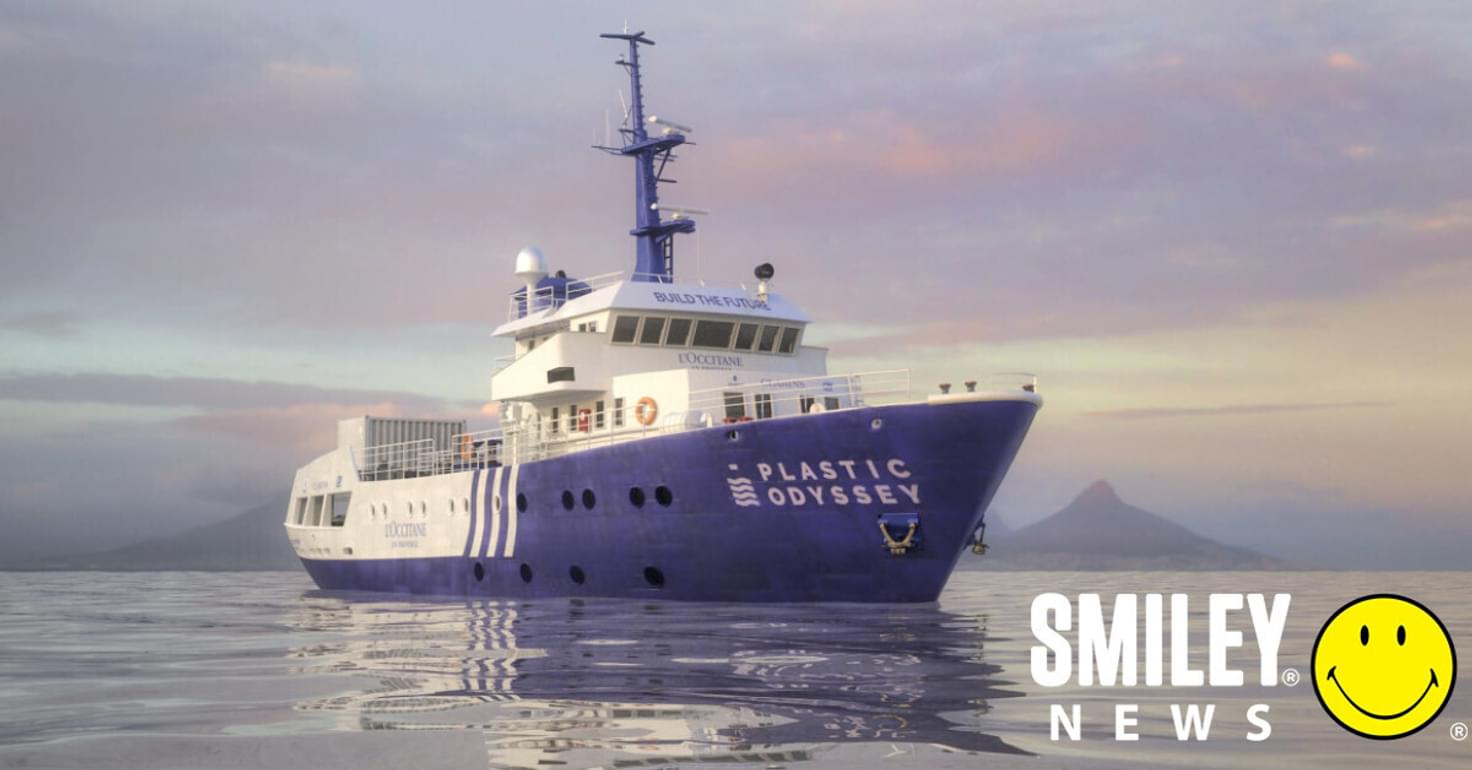
Words by Smiley Team
Hoping to consign plastic waste to legends of the past, Plastic Odyssey is the first vessel to turn plastic into fuel. Setting sail on an incredible adventure in November, the boat will travel the world promoting local recycling initiatives along its route.After four years of research and since announcing the project in February, its team recently launched an open source platform for recycling entrepreneurs of the future. The website offers public access to the technologies used by the vessel, spreading recycling knowledge as far and wide as possible. As an ex-navy officer, CEO and co-founder of Plastic Odyssey, Simon Bernard, has always been interested in protecting marine life. Explaining the reasoning behind the initiative, he tells Smiley News: "Plastic Odyssey is a recycling laboratory that experiments and develops new ways of recovering plastic waste. We design technologies that can be replicated and adapted worldwide, to create recycling networks where they do not yet exist."
Everything on board the ship is designed to reduce waste on as large a scale as possible, from its recycling laboratory to its cabins. While its conference room serves as a library of alternatives to plastic, its zero-waste kitchens, bathrooms and cabins test solutions that can be replicated in hotels or restaurants around the world. “During a stopover in Dakar in 2016, not only was I struck by the plastic pollution in cities, but I was impressed by the ingenuity and ubiquitous culture of plastic recycling," says Simon, explaining how the project came about. “I kept telling myself that if plastic recycling technologies, held by only a few specialists today, were to be democratised, not only would this pollution disappear, but thousands of jobs would be created.”Co-founder Alexandre Dechelotte has additional reasons for joining the project: “As a father, I strongly believe the planet’s future determines our future and carrying on as normal is not an option. No magic solution will emerge by itself, so we have to make things happen ourselves. We all have a part of the solution in our hands, so that's why this project is important to us all.”
Every minute, 20 tons of plastic end up in the ocean. If this continues the UN warns that by 2050 there will be more plastic in the oceans than fish. This pollution spreads to our shores, clogging the stomachs of animals and ending up in our food so that every week we swallow an average of five grams of plastic particles. Experts can trace 90% of marine pollution to cities in 32 countries, which the boat will visit along its route. After launching with a ‘tour de France’, its crew will steer the vessel via coastal towns of Africa, Asia and South America over three years. Its crew of 20, includes a researcher, an engineer and a community worker, who will build up a global network of local initiatives and a database of replicable solutions to reduce plastic use and improve recycling.Since 2016, the team has prepared for this voyage, transforming an old ocean research boat into a vessel of change with funding from corporate sponsors such as L'Occitane en Provence, Clarins, Matmut and Credit Agricole. For more information visit plasticodyssey.org/en/.